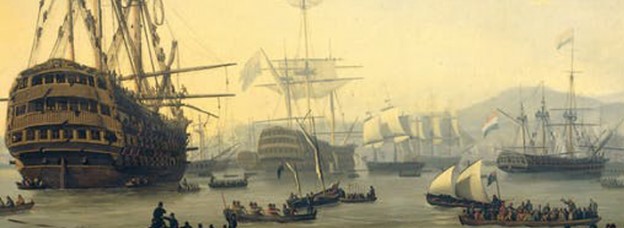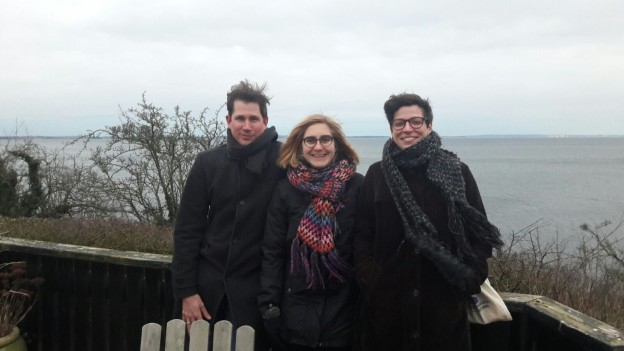We are excited to announce the program for our upcoming PhD Conference: The Mobility of Politics, The Politics of Mobility, which will be held 7-9 June 2023, University of Padua.
Wednesday 7th June 2023
14:00 Registration
14:30 Introduction: Carlotta Sorba (University of Padua) and Henk te Velte (Leyden University).
14:45 Keynote lecture: Aristotle Kallis (Keele University), How fascism became mainstream: mobilities of ideas and revolutions of banality.
15:45 Coffee break
16:00 Panel 1. Migrations
Discussant: Pertti Ahonen (University of Jyväskylä)
Chair: Irène Herrmann (Université de Genève)
- Christine Mertens, Black Exclusion Laws and the Production of Migrant “Illegality” in the U.S. Antebellum South, 1790s-1840s.
- Roxane Bonnardel Mira, From transit to settlement. Uses of mobility control policies in Paris in the early 20th century.
- Eka Saputra Rangga, The politics of minority diaspora and the making civil society: A case of Hadrami communities in post-independence Singapore, c. 1945-2000.
18:00 Guided tour to Palazzo Bo, the historical building of the University of Padua
20:00 Dinner
Thursday 8th June
09:00 Panel 2. Political Activism
Discussant: Henk te Velte (Leyden University)
Chair: Giulia Albanese (University of Padua)
- Michele Magri, Transatlantic Risorgimento Activism: Exploring the Political Practices and Agency of Italian Exiles in the United States, ca.1820-1860.
- Michèle Corthals, Communist women’s struggle before and during the Second World War: a Matter of International Mobility of Ideas, Practices and People.
- Yusra Abdullhai, The Rwenzururu Movement and its Uphill Battle for Self-Determination.
10:30 Coffee break
11:00 Panel 3. Texts and ideas
Discussant: Irène Herrmann (Université de Genève)
Chair: Norbert Goetz (Södertörn University)
- Atlanta Neudorf, The ‘Right of Assassination’: Félix Pyat, the Orsini Affair, and International Revolutionary Politics in Britain (1858).
- Francesco Mocellin, The mobility of ideas, books, and people in the entre-deux-guerres Europe: the case of Piero Treves.
- Ian Lewis, The Transnational Circulation of Political Ideas across Continents: The Case of Japan’s Appropriation of the Architecture of Political Representation.
13:00 Buffet
14:30 Panel 4. Institutions
Discussant: Norbert Goetz (Södertörn University)
Chair: Matteo Millan (University of Padua)
- Edward Ford, The Global Context of Australia’s Proportional Representation Debate, c. 1890-1910.
- Mikko Ville Puttonen, The Spring 1945 – the ‘postwar moment’ and awakening political activity in Trentino-Alto Adige/South Tyrol.
- Maha Ali, Asian Actors in Action: The Mobility of Human Rights Politics at the United Nations.
16:00 Coffee break
16:15 Keynote lecture: Elena Bacchin (University of Venice), Political Prisoners as Transnational Actors of the Italian Risorgimento.
17:15 Board Meeting
18:30 Concert in the DiSSGeA courtyard
20:00 Dinner
Friday 9th June
09:00 Panel 5. Media
Discussant: Federico Mazzini (University of Padua)
Chair: Iréne Herrmann (Université de Genève)
- Stefano Lissi, The ‘Italian dilemma’: how the dynamics of mobility of the
Italienische Reise influenced German perceptions of Italian politics
(1800-1820). - Jamie Jenkins, ‘Forward with the People’: The Tabloid Press as a Facilitator of Political Mobility in Postwar Britain.
- Malo De la Brouchardière, Popular Music and Humanitarian Aid.
10:30 Coffee break
11:00 Final round table. Political History and Mobility
Participants: Pertti Ahonen, Matteo Millan, Niccolò Pianciola, Carlotta Sorba.
Chair: Henk te Velde
12:30 Buffet
With thanks to the organising committee: Giulia Albanese, Federico Mazzini, Matteo Millan, Enrico Francia, Carlotta Sorba
Contacts for further information: Stefano Poggi, Alessandra Vigo aphconference2023@gmail.com




